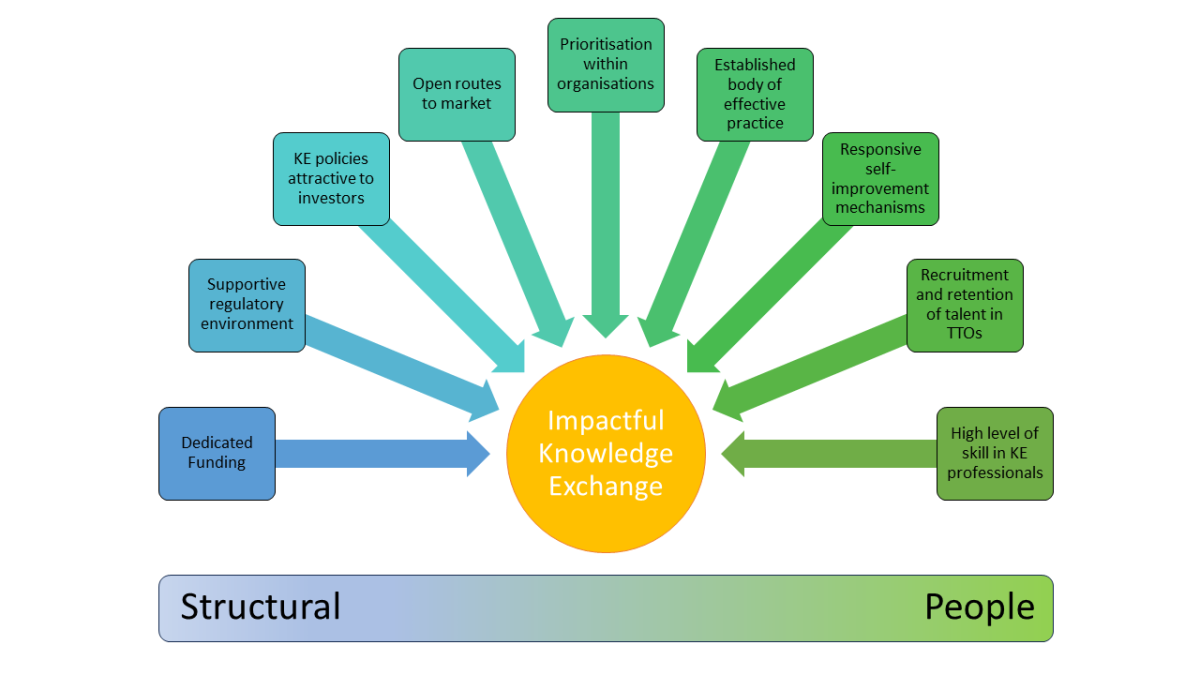In the second of a series of blogs about how to improve Knowledge Exchange in the UK, David Russell sets out a positive agenda for developing our collective capacity to meet the nation’s strategic needs.
There are many factors that contribute to the flourishing of Knowledge Exchange in the UK in all its guises. None is purely structural nor purely human, but we can think of them usefully as being on a dial with a sliding scale.

In the first blog in this series I set out ten common barriers to skills development. In this blog, I focus on solutions – in particular, how we can build systemic solutions to the factors on the right-hand end of this scale.
The key word here is ‘systemic’. There is a major problem in many sectors where capacity building or improvement are attempted through short-term, isolated solutions such as time-limited grants or localised ‘pilot projects’ that never have a viable prospect of scaling-up to be system-wide. Another common error is to over-estimate the beneficial effect of gathering and disseminating case studies. It is important, of course, to capture examples of things that have been successful; but success is contingent on so many factors, and most case studies are of limited value to readers if they are operating in different contexts with different constraints and opportunities. This is especially true when little or no research has been done to separate out the critical success factors from the merely contingent ones.
So what are the long-term solutions with deep roots that will grow a much richer, more flourishing ecosystem for us and create higher value inputs to KE? Fortunately, we do not need to grow from seeds here, as many other sectors and professions have grown mature ecosystems before us, and we can learn from them. Here then are some of the most important factors as the next level down:
Each of these is a significant undertaking which needs long-term commitment and a collegiate approach from partners across the KE landscape. But providing the insight, expertise, framing and facilitation is the role of PraxisAuril as the sector’s professional body.
In the next few blogs I will consider these factors one by one and discuss how they can be taken forward practically. We are excited to be engaged in this long-term transformation programme with and on behalf of the sector. I would be very interested to hear thoughts, suggestions and ideas for collaboration and support at David.russell@praxisauril.org.uk.
We can only achieve this with the support and understanding of Members, stakeholders and funders.
